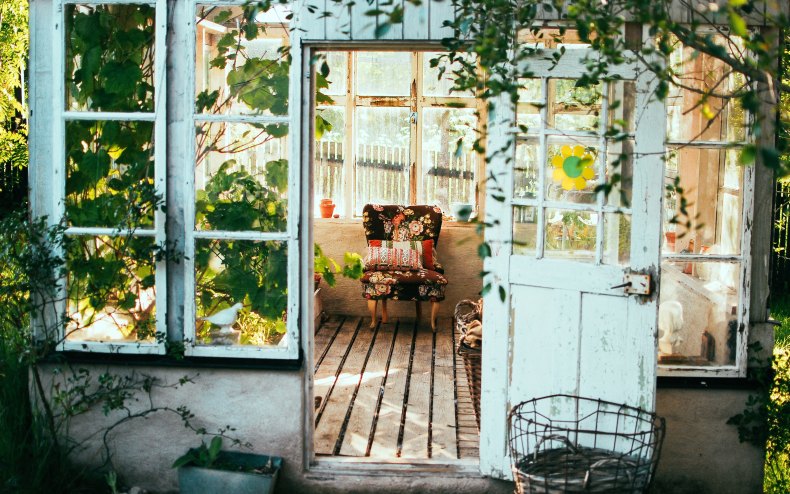- The UK forecasted for up to record 40C temperatures this week
- Make use of the whole property to reduce the effect of heat
- Best tips to sleep during a heatwave
The UK looks set for another heatwave, with the Met Office forecasting that the mercury will rise again this week and could even reach record temperatures.
Temperatures will reach well above average by the weekend, with some parts of the UK predicted to reach up to a shocking 40 degrees. But sun worshipers need to be cautious, the warm weather can lead to serious consequences, as hot spells are expected to become more frequent and intense.
Sufferers of long-term illnesses which may already affect heart rate and breathing are the most at risk and for those who live alone, especially those over 75, It may be useful to seek medical advice where needed. The environmental health office at your local authority can inspect your home for health hazards, including excess heat.
Experts at McCarthy Stone share their tips on keeping homes cool and safe in a heatwave.

Simple hacks at home
Despite taking steps to cool down your home, heat can still enter through unsealed gaps around doors and windows. You can easily block out the unwelcome heat by locating gaps and sealing them with draught excluders or, as a makeshift option, household towels.
Keep the windows closed while the temperature outside is higher than it is inside, only opening once it has dropped lower. Make the most of cooler night-time and early morning temperatures to cool the building with ventilation.
Adding houseplants is another simple step that can be taken to create moisture in a stuffy room and create a more breathable space. Rubber plants, snake plants, and peace lilies are particularly effective.

Creating a breathable bedroom
Speaking to McCarthy Stone, sleep expert and psychologist, Dr Nerina Ramlakhan stressed the importance of treating your bedroom as a sleep sanctuary, even as temperatures rise, advising that “quiet, dark and not too hot – 16°C is ideal.”
Obviously, it’s not going to be easy to keep the temperature down, but tricks such as turning off electrical devices and sockets in the bedroom can help. Electrical appliances emit heat so do not be tempted to charge your phone near you at the night instead, keep it as far from your bed as possible. Like technology, light bulbs also radiate heat and keeping the lights off is best for keeping the bedroom cool.
Cotton should be your bedding material of choice during warmer nights. More breathable than satin and silk, light-coloured cotton bedsheets are probably the coolest coverings you’ll find.

Prepare your property
According to the Met Office, a UK heatwave is when the heat meets or exceeds maximum temperatures for at least three consecutive days so it’s important to check in on elderly friends, relatives, or neighbours to ensure that properties are prepared for prolonged periods of heat.
When looking to rent or buy, opting for a ground floor flat could be a good choice as top floor flats retain more heat as heat rises. Spending time on the ground floor or sleeping downstairs on warmer nights can make a big difference but for those in top-floor flats, remaining in the coolest parts of the property is key.
Close curtains on rooms that face the sun to keep indoor spaces cooler, preferably using curtains with pale, reflective linings rather than metal Venetian blinds and curtains with dark linings. These can retain heat and raise the temperature in the room further and if replacing them is not possible, adding an electric fan to the room may be a necessary step.

Take care in the garden
Physical activity and going outdoors during the hottest time of the day are not encouraged. You should try to keep out of the sun between 11 am and 3 pm, when the UV rays are strongest.
Whilst spending time in the garden, applying sun cream, shading the face with a sun hat and keeping hydrated are essential. It’s also important to increase outside shading and spraying water on the ground outside can also help to cool the air.

Stay ahead of the curve
Keep ahead of the weather by checking the latest weather forecast and temperature warnings. If you are caring for another person during a heatwave and have concerns for their wellbeing, you can look out for any changes in behaviour, especially excessive drowsiness. This could also include headache, unusual tiredness, weakness, giddiness, disorientation or sleeping problems.




